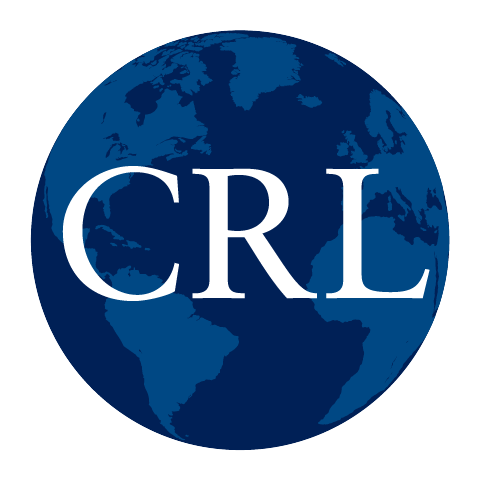Austria : a country study
Na minha lista:
| OCLC: | 622776397 |
|---|---|
| Autor Corporativo: | |
| Outros Autores: | , |
| Idioma: | English |
| Publicado em: |
Washington, D.C. :
Federal Research Division,
1994.
|
| Edição: | 2nd ed. |
| coleção: | Area handbook series.
DA pam ; 550-176. |
| Assuntos: | |
| Acesso em linha: | LLMC Digital |
| Itens Relacionados: | Print version:
Austria. |
| Formato: | Documento Governamental Monograph Acesso em linha |
Sumário:
- The Alpine-Danubian region before the Habsburg dynasty. The Celtic and Roman eras ; The early medieval era ; The Holy Roman Empire and the Duchy of Austria
- Rise of the Habsburg empire. The Habsburg dynasty in the late medieval era ; Territorial expansion, division, and consolidation ; The Protestant Reformation in the Habsburg lands ; The Turkish threat
- The counter-reformation and the Thirty Years' War. Division and rebellion ; The Thirty Years' War, 1618-48 ; The peace of Westphalia
- The baroque era. Political and religious consolidation under Leopold ; The Turkish wars and the siege of Vienna ; The war of the Spanish succession ; The pragmatic sanction and the war of the Austrian succession, 1740-48
- The reforms of Maria Theresa and Joseph II. Baroque absolutism and enlightened despotism ; The strategic impact of the reform era
- The Habsburg empire and the French revolution. The Napoleonic wars ; The congress of Vienna
- Austria in the age of Metternich. International developments, 1815-48 ; Domestic policies
- The revolution of 1848 and neoabsolutism. Revolutionary rise and fall ; The failure of neoabsolutism ; Loss of leadership in Germany
- Austria-Hungary to the early 1900s. The founding of the dual monarchy ; Final defeat in Germany and reconciliation with Prussia ; The eastern question ; Internal developments in Austria
- The final years of the empire and World War I. The crisis over Bosnia and Hercegovina ; World War I ; The end of the Hapsburg empire and the birth of the Austrian republic
- The first republic. Overview of the political camps ; The foundation of the first republic ; Political life of the 1920s and early 1930s ; The end of constitutional rule ; Growing German pressure on Austria
- The Anschluss and World War II. Absorption of Austria into the Third Reich ; Nazi economic and social policies ; Repression and compliance ; World War II and the defeat of Nazi Germany
- Restored independence under Allied occupation. Foundation of the second republic ; Four power occupation and recognition of the provisional government ; The 1945 election and consolidation of the Austrian government ; Consolidation of democracy ; Austria's integration with the West ; The 1955 state treaty and Austrian neutrality
- The grand coalition and the Austrian people's party coda, 1955-70. Foreign policy in the late 1950s and the 1960s ; Elections and parties ; Domestic tranquility under the grand coalition
- The Kreisky years, 1970-83. Electoral politics in the Kreisky era ; Domestic issues ; Foreign policy ; End of the Kreisky era
- Geography. Landform regions ; Human geography ; Climate ; Ecological concerns
- Austrian national identity
- Demography. Demographic development ; Immigration ; Emigration.
- [cont.] Social Minorities. Official minority groups ; Other minorities ; Attitudes toward minorities
- Social structure
- Family life. Family developments after the 1960s ; Status of women
- Religion
- Education
- Social Security. Employment, unemployment, and pension benefits ; Health and health insurance ; Family benefits
- Housing
- Economic growth and government policy. Historical background ; Developments during the 1970s and 1980s ; The new policies ; The magic pentagon ; The subsidy policy ; Foreign workers in Austria
- Principal economic interest groups. The chambers of commerce ; The chambers of agriculture ; The chambers of labor ; The professions ; The Austrian trade union federation ; Works councils ; The federation of Austrian industrialists
- Social partnership
- Structure of the economy. The agricultural sector ; The industrial sector ; Energy ; The services sector
- Foreign economic relations. Foreign trade and the balance of payments ; Austria and European integration ; Openings toward the east
- Constitutional framework
- Government institutions. The federal president ; Chancellor and cabinet ; Nationalrat ; Bundesrat ; Bundesversammlung ; Judicial system ; Civil service ; Provincial government ; Local government ; Electoral system
- Political dynamics. The social democratic party of Austria ; The Austrian people's party ; The freedom party of Austria ; The green parties ; Political developments since 1983
- Mass media. Newspapers and periodicals ; Radio and television
- Foreign relations. Foreign policy during the Kreisky era ; New focus on Europe ; Regional issues
- Historical background. The Hapsburg military ; Two world wars, 1914-18 and 1939-45
- Strategic concepts and missions of the Austrian armed forces
- Neutrality and the armed forces
- National defense. Army ; Personnel, conscription, training, and reserves ; Army equipment ; Air force ; Uniforms, ranks, and insignia ; Military justice ; The defense budget ; Domestic and foreign sources of military equipment
- Internal security. Penal codes ; Criminal court proceedings ; Police ; Incidence of crime ; Penal system
- List of figures. Administrative division of Austria, 1993 ; Europe in the sixteenth century ; Austrian empire, 1815 ; Austria-Hungary, 1867-1918 ; Topography and drainage ; Population by age and gender, 1990 ; Population by age and gender, projected 2020 ; Structure of the education system, 1993 ; Economic activity, 1993 ; Transportation system, 1993 ; Structure of government, 1993 ; Organization of national defense, planned 1995 ; Major military installations, planned 1995 ; Military ranks and insignia, 1993.

